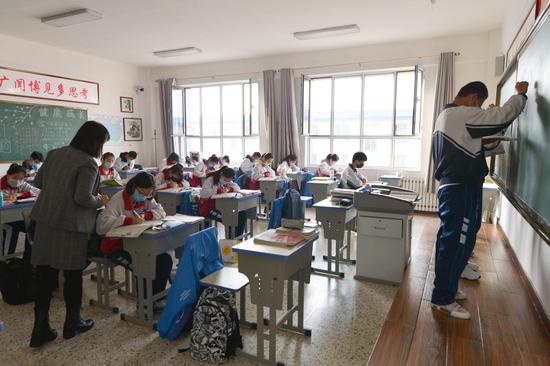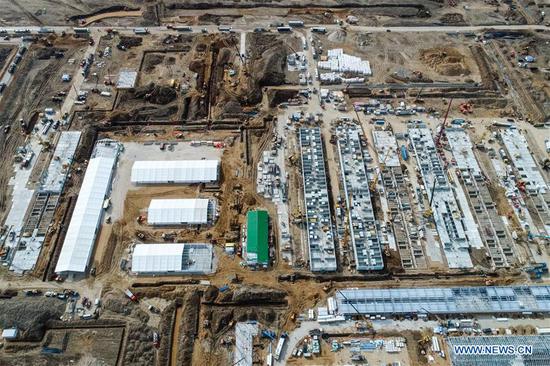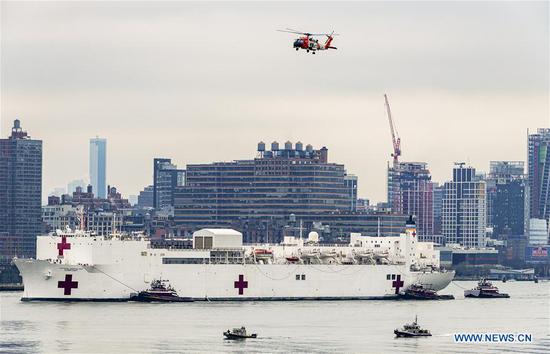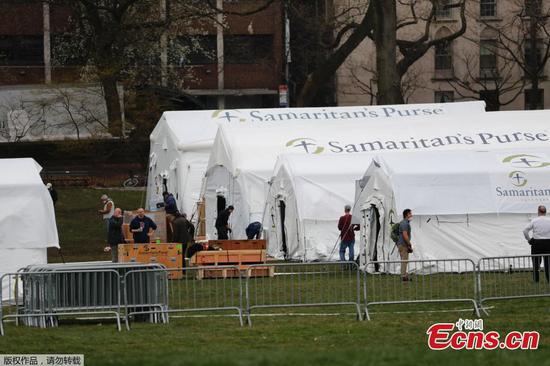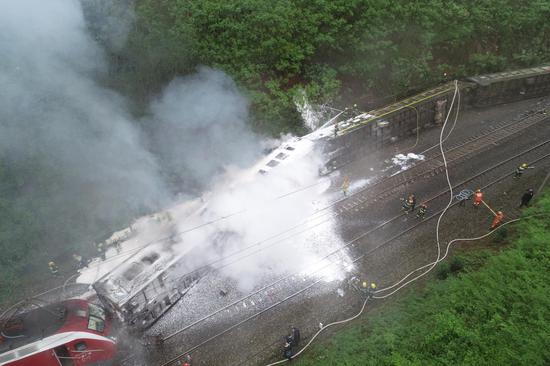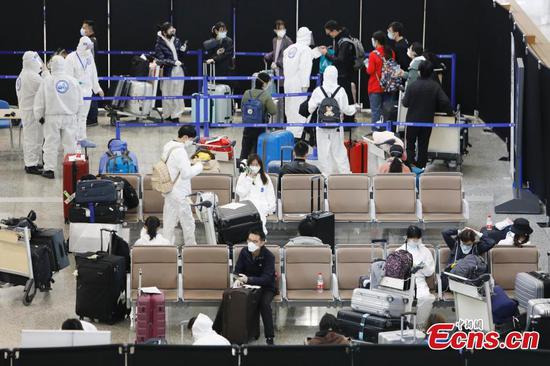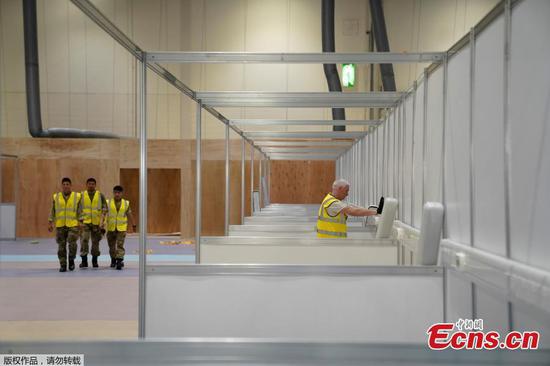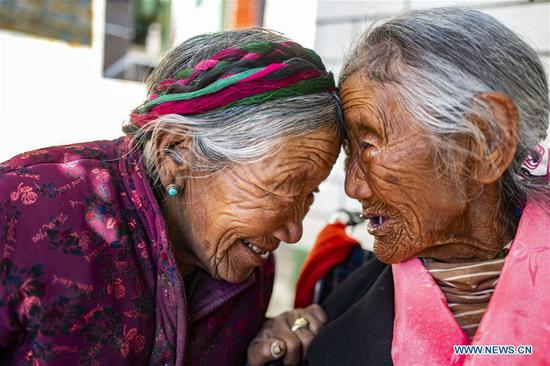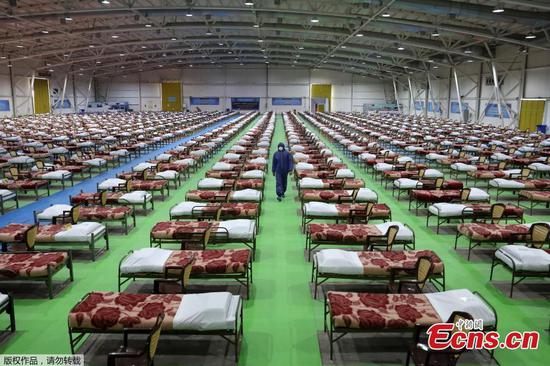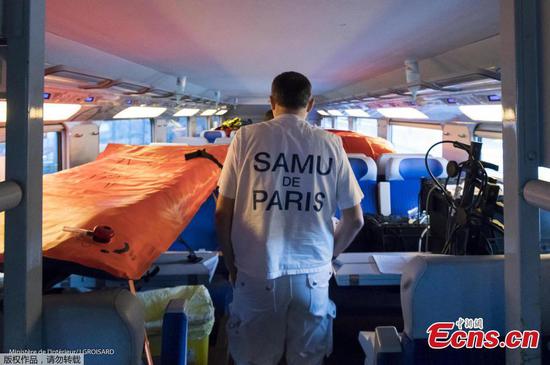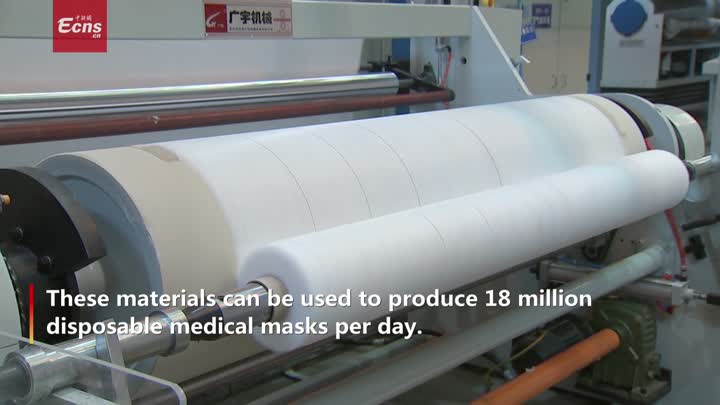Spain's health authorities confirmed on Tuesday that the country's total number of coronavirus cases increased by 9,222 to 94,417, a higher daily rise in new cases than on Sunday and Monday, when 6,549 and 6,398 new cases were confirmed respectively.
Spain also saw 849 new deaths in the past 24 hours, a new high over 838 reported on Sunday, bringing its death toll to 8,189. Madrid, still the worst-hit in the country, registered 27,509 cases and 3,603 deaths as of Tuesday.
INFECTIONS ON RISE
The World Health Organization (WHO) data showed the global tally of COVID-19 infections has grown to 719,700 as of 10:00 CET Tuesday, with 33,673 deaths.
Outside China, some 640,000 cases have been reported by more than 200 countries and regions, including 10 countries, mostly in Europe, with over 10,000 cases.
Italy remains the worst hit in Europe. On Tuesday, the country observed a minute of silence for the victims of the coronavirus pandemic. Its total number of infections has climbed to 105,792, including 12,428 fatalities. A total of 2,107 new active infections were reported compared to Monday, bringing the national total to 77,635.
In Germany, confirmed cases on Tuesday increased by 4,615 within one day to 61,913, while the number of new deaths rose to 583 compared with 455 a day earlier, according to the Robert Koch Institute (RKI), a federal government agency and research institute responsible for disease control and prevention.
RKI President Lothar Wieler warned that the "mortality rate will increase" in Germany.
The cumulative number of cases in France reached 52,128 by Tuesday, with death tally at 3,523. In the past 24 hours, the virus claimed 499 lives and forced 458 patients into intensive care units.
Britain saw its COVID-19 cases reaching 25,150 as of Tuesday morning, a rise of 3,009 in 24 hours. A total of 1,789 patients have died as of Monday afternoon, up 381 from the previous day.
Austria's cases climbed to 10,019 on Tuesday, with 128 deaths reported, making it the ninth country in Europe with over 10,000 confirmed cases, after Italy, Spain, Germany, France, Britain, Switzerland, Belgium and The Netherlands.
BOOSTING PRODUCTION CAPACITY
German Minister of Finance Olaf Scholz announced on Tuesday that the government was making "financial commitments" to support local companies in switching to the production of medical products.
Minister of the Interior Horst Seehofer also told the German newspaper Bild that in the future, Germany would need a law to "ensure medical supply," especially for medical products such as face masks and medicines in Germany.
"For things that may never happen, may occur very rarely, but when they do, they are existential for all of us," said Seehofer.
Also on Tuesday, French President Emmanuel Macron, while visiting a surgical mask factory near Angers in western France, pledged that "We have to rebuild our national and European sovereignty" amid the coronavirus crisis.
Macron said a consortium of four French industrial groups announced that it will produce 10,000 ventilators by mid-May to support French hospitals in their fight against the rapidly spreading coronavirus.
Ventilators are crucial in the fight to save patients whose lungs are assailed by the novel coronavirus. One of the biggest challenges faced by health workers around the world amid the pandemic is trying to save lives when the number of patients needing intensive care overtakes the available medical facilities.
















